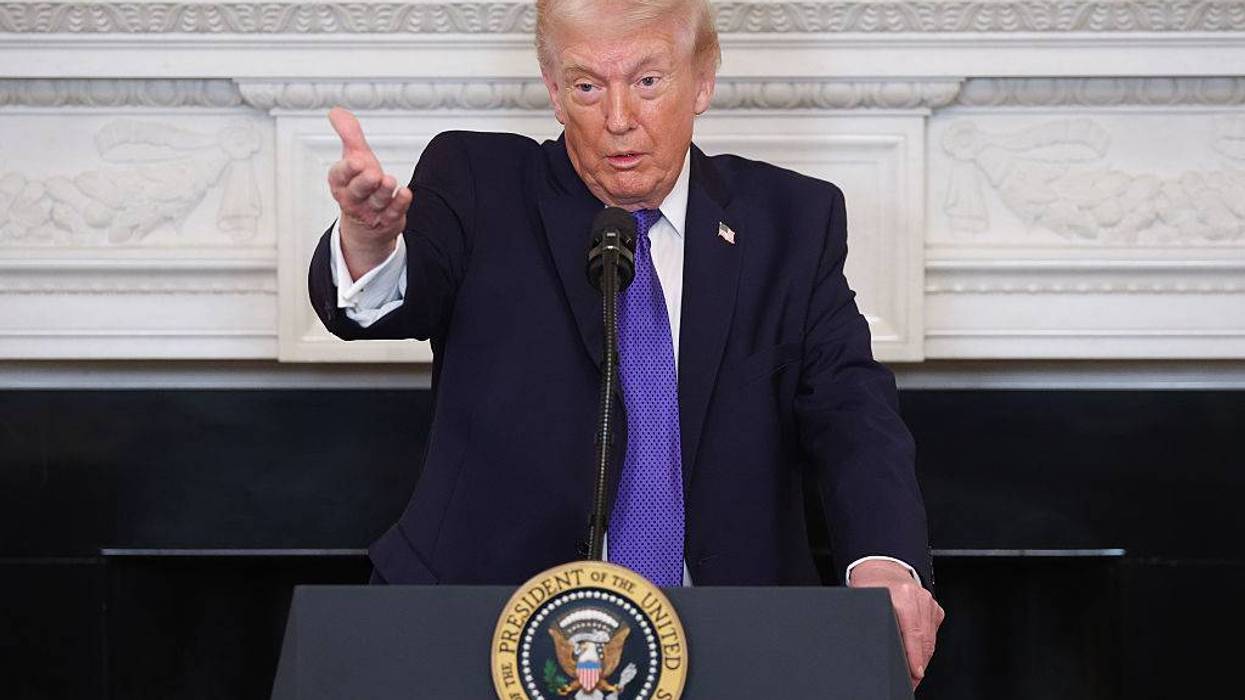In a letter sent to President Biden and Congress today, more than 375 local and state elected officials from across the country called on national leaders to: halt permitting for new fracking and fossil fuel infrastructure projects; revoke existing permits for oil and gas extraction within 2,500 feet of homes and schools; end subsidies for the fossil fuel industry; and support a just transition to clean energy for workers and communities impacted by fossil fuels. The letter was facilitated by the advocacy group Food & Water Watch, the first national organization in the country to call for a ban on fracking everywhere.
The letter delivery comes in advance of an expected announcement from Biden on April 22, Earth Day, regarding his administration's plans for reducing greenhouse gas emissions in line with the Paris climate agreement. The latest science indicates that even modest emissions targets will be impossible to achieve without an immediate curtailing of new oil and gas development.
Meanwhile, in spite of Biden's unambiguous campaign pledge to halt fracking on federal lands, new permitting for the highly dangerous and polluting extraction method continues.
"Local elected officials have their fingers on the pulse of their communities, and can speak better than anyone about what kind of future everyday Americans are demanding. Their collective statement today is clear: It's time for our leaders in Washington to tackle the climate crisis now, not later. This means halting fracking and fossil fuel projects, period," said Wenonah Hauter, executive director of Food & Water Watch.
Daniel Lee, Vice Mayor of Culver City, CA: "Stopping fracking infrastructure is important to protect the health and safety of our residents. Living near fracking puts you at risk of really serious health problems. From a broader perspective, our residents also really care about taking substantive action to address the climate crisis. The more we invest in dirty fuels, the more health problems and climate disasters we're locking ourselves into."
Chris Hinds, City Council Member in Denver, CO: "We can ban fracking in the City of Denver, but if we don't do this at a national and international scale, we will continue to destroy our habitability on our planet. We're trying to do our part here in Denver, but we need members of Congress and President Biden to do their part too."
Tara Zrinski, Council Member, Northampton County, PA: "We're facing two new proposed pipeline projects that would use eminent domain to destroy residential and farm land, in addition to existing pipelines in our county. This all stems back to fracking. We can't address this only at the local or state level. We need a national energy program that is supported by equity, infrastructure, green jobs, and the financial backing that only the federal government can provide."
An early test of President Biden's commitment to climate action and environmental justice is the Line 3 pipeline expansion in Minnesota. Indigenous leaders and environmental advocates from across the country have protested the project for years.
Jennifer McEwen, State Senator, MN: "As Minnesotans, we have a unique moral responsibility to reject new fossil fuel infrastructure. If the Line 3 pipeline is built and oil starts flowing through it, it will be game over for the climate. So I am asking the federal government and the Biden administration to lead, to do their jobs, and to lead us forward to a caring economy that will be sustainable and address the global climate crisis."
Mary Kunesh, State Senator, MN: "Fossil fuels are the main source of climate pollution, and that's one of the most pressing issues facing the world today. The fact that Line 3 would have the equivalent climate impact of bringing 50 new coal plants online, it just boggles my mind why anyone would support this. I'm very hopeful that President Biden may cancel this and send Enbridge packing home."
Dominic Frongillo, Executive Director of Elected Officials to Protect America and formerly a Town Council Member in Caroline, NY said: "EOPA welcomes the Administration's focus on directing 40 percent of the benefits from investments in climate and clean energy infrastructure to disadvantaged communities. Prioritizing environmental justice is a major step towards a clean energy economy. Phasing out permits for drilling, especially for those most harmful to frontline and fence line communities, would be an important next step that needs to happen. Too many people suffer chronic illnesses and premature deaths from the toxic pollution fossil fuel extraction and production causes."
Russell Greene, Senior Strategic Advisor, Climate. Progressive Democrats of America said: "The closer you live to the point of fossil fuel extraction and production, the closer your life is to the suffering it unleashes each day. The elected city and state officials sending this letter to President Biden and the members of the 117th Congress live closer to the suffering than do the leaders in Washington; and they are sounding out a warning, loud and clear. The climate emergency is not coming. It is here. People are suffering now. Halt. Revoke. End Fossil Fuels everywhere. Now."





